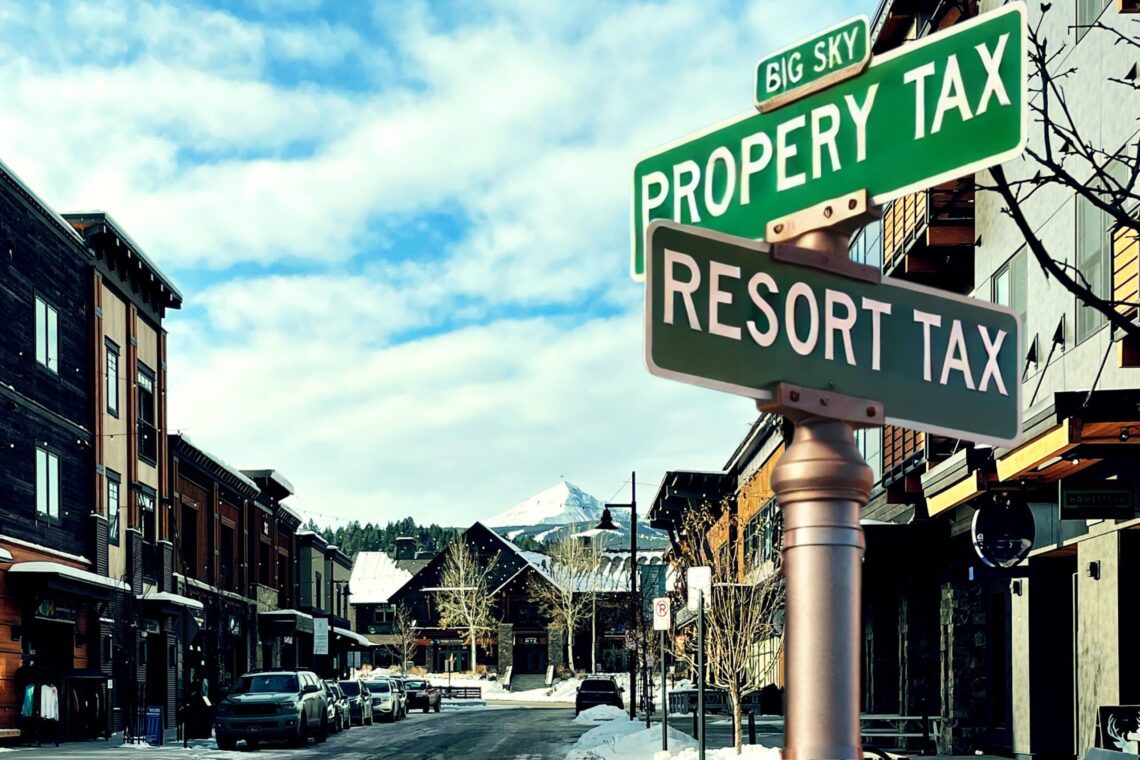Understanding the differences between property tax and resort tax
By Daniel Bierschwale EBS COLUMNIST
Funding public projects requires a variety of tools, and in Big Sky, property taxes and resort taxes are two of the most impactful. While both serve the common goal of supporting public needs, they differ significantly in function, particularly when it comes to bonding.
Property taxes are levied on land and property owners based on the assessed value of real estate. This means the tax burden falls squarely on property owners. Conversely, resort tax is levied on the sale of luxury goods and services. Because it is tied to spending rather than ownership, resort tax allows Big Sky to shift some of the financial burden for essential services and infrastructure to the visitors who also use and strain them. By funding local government services, resort tax offsets property taxes, reducing the financial burden on local residents while ensuring sufficient funding for the community.
These differences in how revenue is generated and who pays become especially important when considering how large-scale infrastructure projects are funded. Bonding is a tool that enables communities to address urgent projects today by borrowing funds upfront and repaying them over time. However, the method of funding bonds—and the financial burden they impose—differs between property tax and resort tax.
The difference
Most of us are familiar with property tax bonds, particularly those tied to funding schools or other public institutions. When a property tax bond is proposed, voters typically see a ballot measure that asks for approval to increase their taxes. These measures often include specific language explaining how much the increase will cost per $100,000 of assessed property value, and how it will affect homeowners’ annual tax bills.
While property tax bonds are a powerful tool, they place a direct and immediate financial burden on residents. Every dollar required to repay the bond, plus interest, comes from property owners within the community. This can mean a noticeable increase in monthly or annual expenses, particularly in areas where property values—and taxes—are already high.
Resort tax bonding, by contrast, offers a fundamentally different funding approach. Instead of relying on new taxes, resort tax bonds simply reallocate a portion of future resort tax collections to pay for projects today.
Many of the typical programs and projects historically funded through resort tax will continue to receive support, though the exact funding levels will adjust to accommodate bond payments. This ensures that while some shifts may occur to fund long-term projects, the community’s essential needs will still be met.
‘No new taxes’
To borrow a quote former president George H.W. Bush, “read my lips: no new taxes.”
Resort tax bonding has two major advantages. First, it allows Big Sky to tackle pressing infrastructure needs before costs escalate due to inflation or other changes. Second, it enables critical investments without increasing the tax burden on residents, relying instead on existing revenue streams.
Timing is a significant factor and the cost of inaction can be steep. Infrastructure projects delayed today often become exponentially more expensive tomorrow. By leveraging bonds, communities can lock in today’s construction rates, address deficiencies before they worsen, and start reaping the benefits of completed projects sooner.
For local residents, the most significant takeaway is that resort tax bonding doesn’t require new taxes or additional revenue from your wallet. Unlike property tax bonds, which directly increase property owners’ financial obligations, resort tax bonds rely on existing revenue streams and reallocate dollars already in play. This distinction makes resort tax bonding an equitable and efficient way to finance community improvements, particularly where a significant portion of resort tax revenue comes from non-residents purchasing luxury goods and services.
Moreover, resort tax bonding underscores the importance of community stewardship. By investing in critical projects now, we ensure that Big Sky remains a vibrant, resilient place for residents and visitors alike. It’s a proactive approach that balances the needs of today with the demands of tomorrow.
As Big Sky continues to grow, the need for innovative, sustainable funding solutions will only increase. Understanding the differences between property taxes and resort taxes—and the role of bonding within each—is crucial for informed decision-making. While property tax bonds remain a valuable tool for specific needs, resort tax bonding offers a unique opportunity to address Big Sky’s infrastructure challenges without placing additional financial strain on local taxpayers. It only requires a vote of support.
In Big Sky, not all taxes are created equal. Resort tax bonding exemplifies how we can leverage our resources wisely, act decisively, and build a community that thrives for generations to come. Through thoughtful planning and strategic investments, we’re not just meeting today’s needs—we’re shaping Big Sky’s future. That’s the Big Sky Way.
Daniel Bierschwale is the Executive Director of the Big Sky Resort Area District (BSRAD). As a dedicated public servant, he is committed to increasing civic engagement and voter education. Many ballot issues impact government services and public funding including subsequent property tax impacts. BSRAD is the local government agency that administers Resort Tax, which offsets property taxes while also funding numerous community-wide nonprofit programs.













